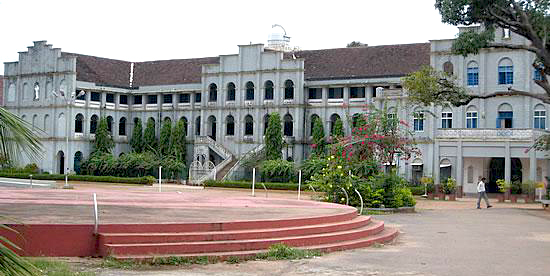
Mangalore, April 27: St Aloysius College in Mangalore has banned women students from wearing the burqa in classrooms, laying down the law in its prospectus.
The diktat that is likely to trigger a debate criss-crossing gender and sectarian lines, was meant for undergraduate courses at the St Aloysius College.
"Students must be neatly dressed in accordance with the rule of approved etiquette. Girls are not expected to wear burqa in the classrooms and in the examination halls. The decision of the principal in this regard is to be accepted," reads the first condition in the general regulations.
At many places in UP's Muslim-dominated areas, students routinely wear the burqa but most take it off inside classrooms although there is no fiat against the full-body dress. In New Delhi's Jamia Milia Islamia, a central university, there is no restriction on students wearing the burqa to classes.
Internationally, France, Italy and Belgium are among countries that have banned the burqa to empower women and ensure personal identification among other reasons. Many other European nations may follow suit.
St Aloysius registrar AM Narahari said on Thursday the college didn't object to girls wearing burqa on campus and in the corridors. However, "girls are not allowed to enter classrooms and exam halls wearing burqa." Narahari said lecturers found it difficult to teach students in burqa and it was mandatory for students to show their face during exam.







Comments
Add new comment